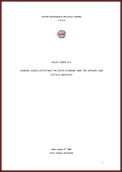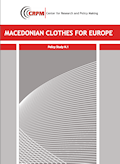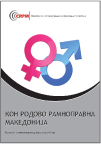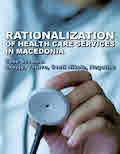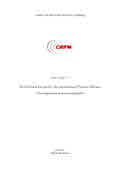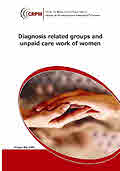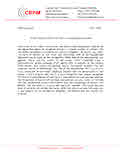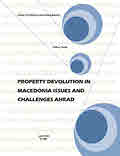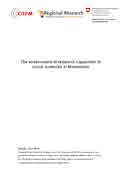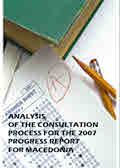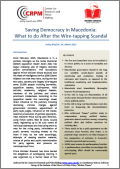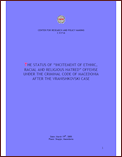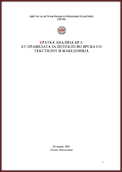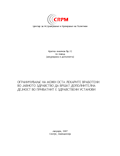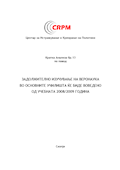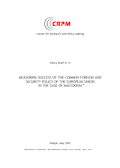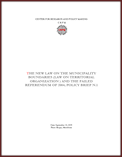
The new Law on the Municipality Boundaries (Law on territorial Organization) and the failed Referendum of 2004
The new Law on the Municipality Boundaries (Law on territorial Organization) and the failed Referendum of 2004
Keywords: Macedonia; democratisation; decentralised government; interethnic relations
This paper will discuss recent political events in Macedonia, concerning the implementation of the Ohrid Agreement in the sphere of development of decentralized government and in particular regarding the events surrounding the referendum on the newly adopted Law on Territorial Organization. On 3rd September 2004 the Macedonian parliament adopted a decision to hold a referendum on 7th November. If successful, the referendum, initiated by the World Macedonian Congress (WMC) in early 2004, would have effectively required a repeal of the newly passed Law on Territorial Organization, City of Skopje and Financing on Units of Local Self-Government, and a return to the status quo ante of 123 municipalities. The new Law has reduced the numbers of municipalities to 84. The calling of the referendum has also forced the postponement of local elections, previously delayed and rescheduled for 21st November, and now required by law to take place by 31st March 2005. A Law on Territorial Organization was part of the indispensable package of laws necessary to ensure the decentralization process, regarded as a crucial component of the Ohrid Framework Agreement (OFA) of 2001. The international community expressed widespread concern about the potential impact of the referendum on the Ohrid process and on inter-ethnic relations.
More...
